
Anxiety can come upon us at any time for any number of reasons. Instead of turning to pharmaceuticals, soothe yourself with aromatic herbs. Let the gentle, holistic and aromatic properties of herbs support you. Long before we even had pharmaceuticals, people suffered from anxiety. In cultures around the world, people turned to herbs, flowers, scents and other natural ways to calm down, reduce anxiety and resume a productive life. Herbs may not act as quickly as modern drugs, but in most cases, there are no unwanted side effects when using herbs and the process is pleasurable. Wouldn’t you rather drink a cup of flavorful and nourishing rose petal herbal tea or use a body lotion infused with the scent of lavender than swallow a pill or capsule? When you practice self care with herbs, the results are rewarding.
Aromatherapy
Using herbs for their aroma, ‘aromatherapy’, is nothing more than allowing the properties of an herb through its scent to enter the body through the olfactory senses. The wonderful thing about herbs is we can’t help but notice the aroma when we’re drinking a cup of tea or using an herb infused oil or lotion. The herbs work in our bodies while we’re enjoying our tea.
Take drinking tea, for instance. Even before enjoying one sip of a nourishing cup of tea, the volatile substances float up the nose in the form of steam bringing the aroma to your senses. Something scientifically comprehensible yet seemingly magical happens. The fragrant molecules bind to odor-receptor sites in the nose and enter the limbic system, the most primitive area of the brain, where memory and emotion are processed. Depending on the constituents of the molecules being inhaled, different neurochemicals are released in the body; those molecules from the herbs can affect anxiety, mood, sexual desire, appetite, and a host of other physical and emotional reactions.
Here is more on what happens when you use the olfactory senses: Beyond Fragrance: Unraveling the Secrets of Our Primal Olfactory Sense
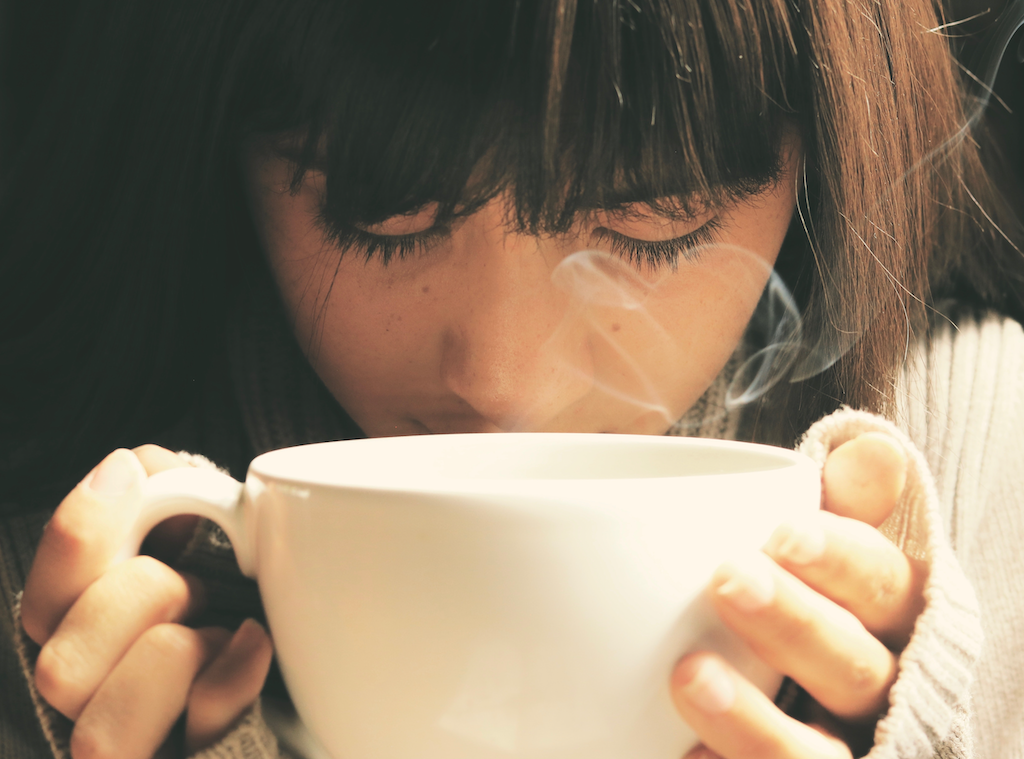
Anxiety
Anxiety manifests in many ways in our bodies. We may have frequent headaches, body aches, sleeplessness or have difficulty getting out of bed. In serious cases, we may have trouble breathing, have heart palpitations, rapid breathing or just feel overwhelmed.
Incorporating soothing herbs in your everyday routine is a pleasurable and easy way to reduce anxiety while we support the body and mind. Anxiety can be tenacious, especially if it’s been with you for a long while. Herbs can only go so far to help you. It is important to look at other aspects of your life. Reassessing what and how you eat, your sleep habits, your relationships, your work and/or home environment are all aspects of a holistic approach.
Holistic Approach
One definition of holistic is ‘Emphasizing the importance of the whole and the interdependence of its parts.’ If you know something in your environment is adding to your feelings of anxiety, incorporating activities that do not feed into your anxiety is key. Activities like meditation and yoga work for some people. Making time for a walk, really looking around you and noticing your surroundings while walking can focus your mind on something other than your feelings of anxiety. Relax to some music or dance to it, if that feels good. Find an activity that captivates you and allows you to focus on that rather than the unwelcome feelings of being troubled. Coloring, jigsaw puzzles, baking, knitting, crocheting… whatever it is, it should be an activity you can do a little each day to give your mind a rest. Enjoy a cup of herbal tea while going about your pursuit.
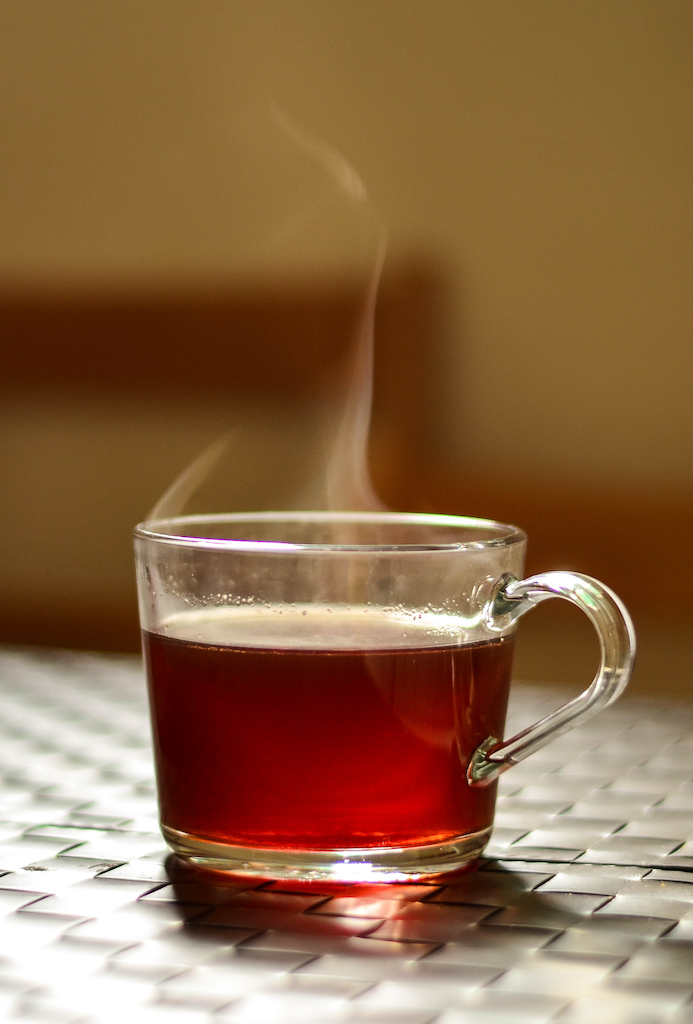
The Herbs
There are many herbs that are utilized to combat anxiety. The ones I’ve listed are common, easy to find and use. My advice is to pick one or two and try each separately. An infusion in the form of tea is the easiest and one of the most effective methods to get the herbs into your body.
If one isn’t working for you, try another. Remember, herbs are not like pharmaceuticals, they work slowly and with the body. Give the herbs some time to make themselves known to the body and become effective. If your sign of anxiety is sleeplessness or that worry loop that goes round and round in your head, I advise taking your choice of tea about an hour or so before retiring. For general anxiety, tea can be taken any time of day. If you can, take a break while you drink the tea. Even a 5 minute break can help the tea be more effective.
Chamomile
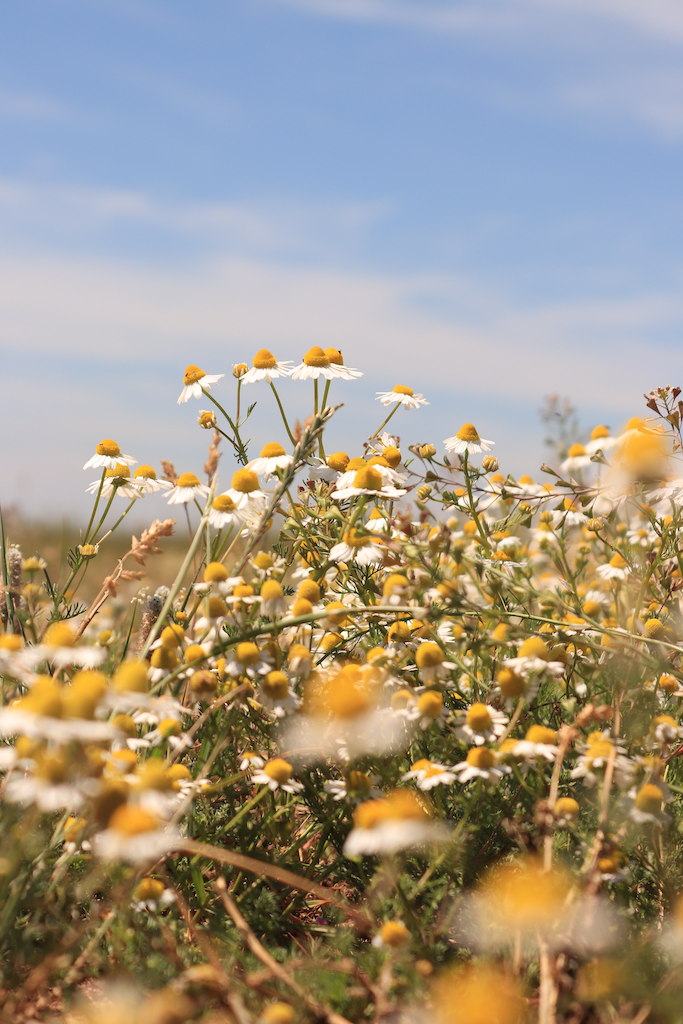
Chamomile is one of the most available and easy to find herbs. It has so many beneficial properties, and for anxiety it is perfect. If you have strong allergies to ragweed, however, chamomile is NOT the herb for you. It is in the same plant family and can cause your allergy symptoms to flare up. So, choose another herb in that case.
Just the aroma of Chamomile can be calming. With its sweet flavor, it’s no wonder Chamomile has been used for centuries to calm anxiety in adults and children. It eases the spirit. It soothes nervous tension by affecting the nerves in our solar plexus. If you feel your anxiety in the stomach or with a tightening of the abdomen, Chamomile may very well be your go-to herb. The fragrant, tiny flower reduces tension so we can open up and let go of our controlling and self critical behavior. It allows us to unwind and gives us space to see the situation in a new light. Chamomile opens us up to allow others in to support us.
Rose
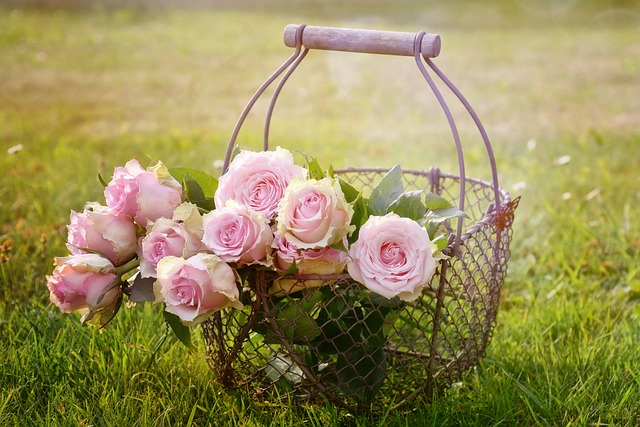
Simply the aroma of rose can be just the tonic you need to bring calm to the mind and support the body. Rose gives a gentle lift to the heart. It is the herbal equivalent to a hug from a good friend. Rose supports our body, mind and spirit.
Rose petal tea soothes the rough edges of our emotions. It allows us to have space to see ourselves in a loving manner. A cup of rose petal tea warms our heart toward ourselves and others.
Using fresh, sweet rose petals from your or a friend’s garden is a perfect way to enjoy the flavor and aroma of rose. Just be sure the roses have not been sprayed with insecticide or other chemicals and that you have permission to pick them. Any type of rose is suitable. Take a little nibble of a petal, if you like the flavor, use it. Dried rose petals are just as effective as fresh ones and are available from on-line herb suppliers. You might find rose petal tea in tea bags at a herb shop or other retailer.
Lavender
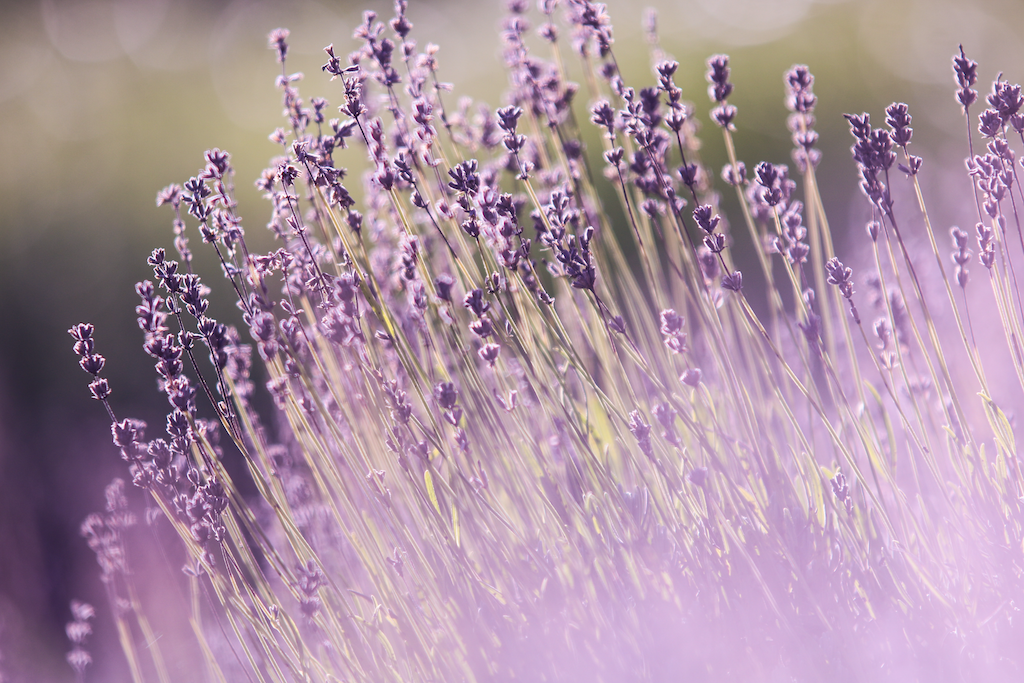
Is there an herbal aroma more familiar and known than lavender? I doubt it. Using lavender’s herbal properties goes back centuries. From soothing bug bites and skin irritations to anxiety and restlessness, we use lavender in bathing, soaps, lotion, infused oils and sachets.
Lavender soothes tension and anxiety headaches. In a massage oil, it relaxes the muscles and unwinds tension held within. A tea with lavender, such as chamomile with a little lavender, taken before bed eases you into a natural sleep. It slows those maddening thoughts that like to whirl around the brain at bedtime.
Not usually taken as a tea by itself, lavender blends well with many other herbs.
Rosemary
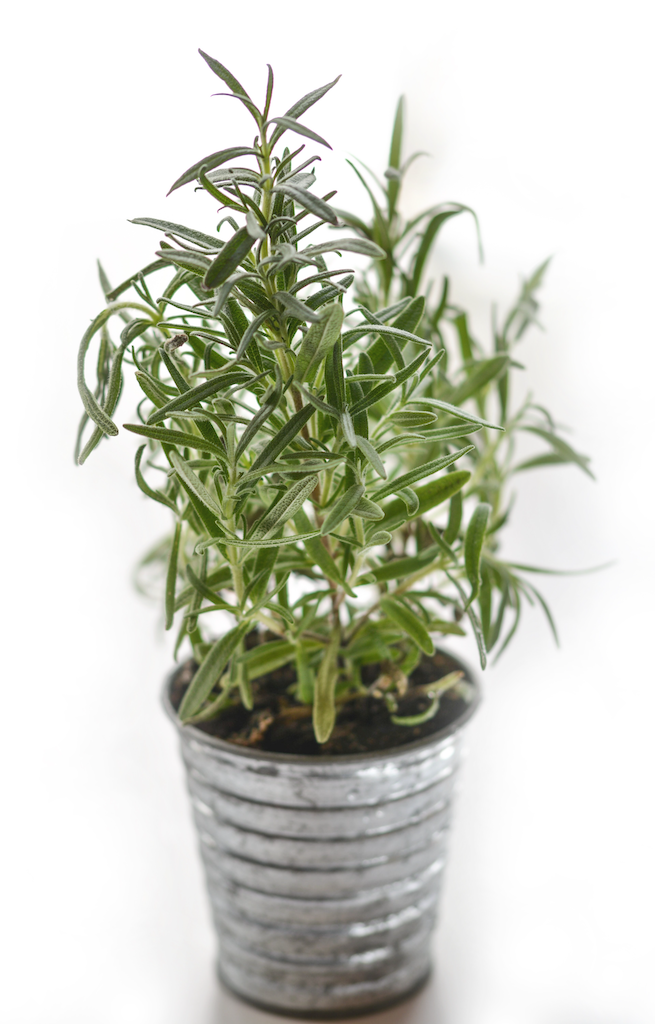
Many of us know rosemary as a kitchen herb used for cooking. Think of the aroma of rosemary coming out of the oven when you enter the kitchen. It’s invigorating, wakening and draws us to itself. Since we don’t often use rosemary as a tea herb, it still has properties that help soothe anxiety, tension and feelings of mental fogginess.
Mix a little rosemary essential oil into a carrier oil like olive, almond or jojoba oil and put it in a little roller bottle. Keep it with you and use it on the insides of your wrist or your temples when you’re feeling sluggish or out of sorts. The properties of rosemary will enter through the skin and help you focus, yet stay relaxed.
Rosemary in an infuser while studying is beneficial. Use more rosemary in cooking to keep you confident and support a healthy nervous system.
In Conclusion
Herbs work in a subtle manner throughout the body affecting our feelings of anxiety as well as numerous other issues. You may feel the relaxing qualities of chamomile after just one cup. To keep yourself anxiety free, you can drink a cup or so of chamomile tea daily. But more than relying on the herbs to do all the work, take a look at your lifestyle. What changes can you make to reduce anxiety causing issues in your life? Are you getting enough sleep? Is there something going on at work that needs addressing? Something you can actually do something about? Remember, we can only change our own behavior, not others’.
Think about your life. In addition to using our lovely, functional herbs, what can you do to make yourself more comfortable in your self, your body or your mind?
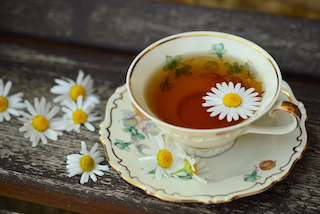
Until next time,
Live Well With Herbs
Cindy
Please make sure that you consult with your doctor or herbalist before ingesting herbal medicine, especially if you are on any serious medications. And please never ingest essential oils unless directed by an advanced professional aromatherapist. This information is for information purposes only.
